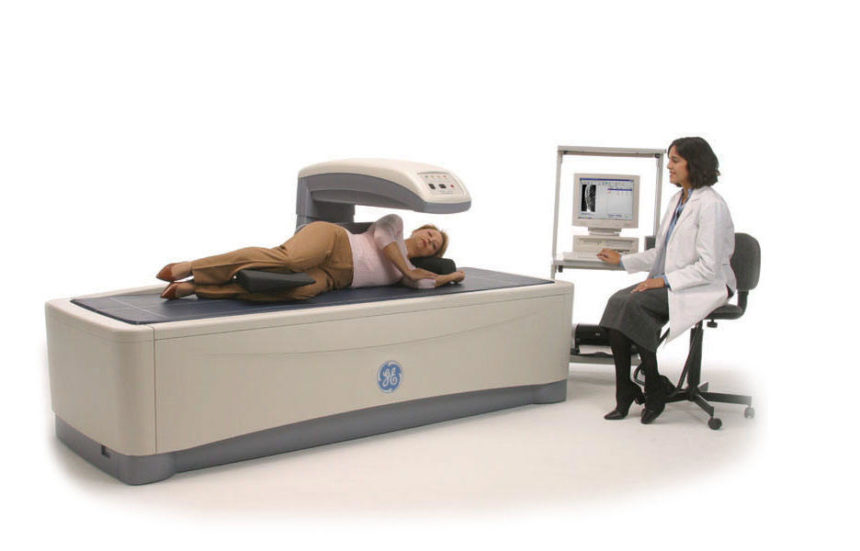Bone Mineral Densitometry, more commonly referred to as bone density screening, is a non-invasive diagnostic tool that measures bone density using dual energy X-ray absorptiometry (DEXA or DXA) technology.
DXA bone densitometry is used to determine if a patient has osteoporosis and is at risk for fractures. While osteoporosis is most commonly found in post-menopausal women, it can also occur in men, and in rare instances, children.
Bergen Imaging Center uses central/large table top DXA, which is a non-invasive, painless examination consisting of low dose X-ray. The technology rapidly measures bone density at the spine and hips; occasionally looking at the forearm, or the whole body when necessary. DEXA is considered the ‘gold standard’ method for measuring bone mineral density and diagnosing osteoporosis.
The procedure is quick and painless, and patients are exposed to minimal levels of radiation—equivalent to roughly one day of background radiation from natural sources.
Who Can Benefit from DXA Bone Density Testing?
*If you are pregnant, please notify technician so test can be rescheduled.
• Postmenopausal women below age 65 who have risk factors for osteoporosis
• All women aged 65 and older
• Men age 70 and older
• Anyone (including children) with a disease, condition or medication associated with osteoporosis
• Anyone who is considering therapy for osteoporosis, if bone density testing would facilitate the decision
• Patients who have experienced fractures after mild trauma (fragility fracture)
• Women who have been on hormone replacement therapy for prolonged periods
• Anyone being treated for osteoporosis, to monitor the effects of therapy

